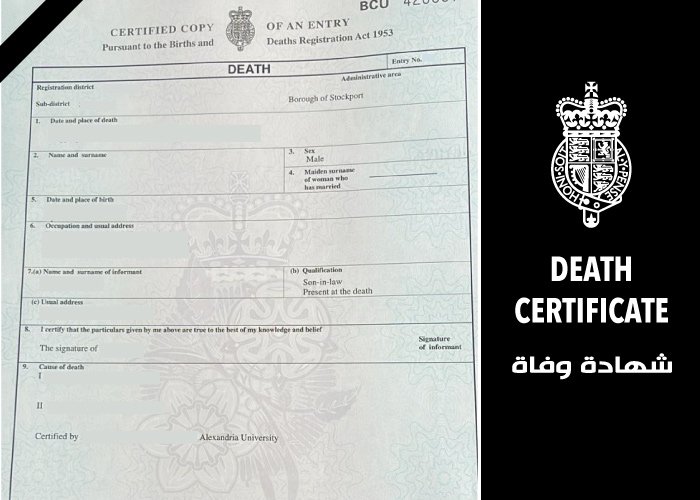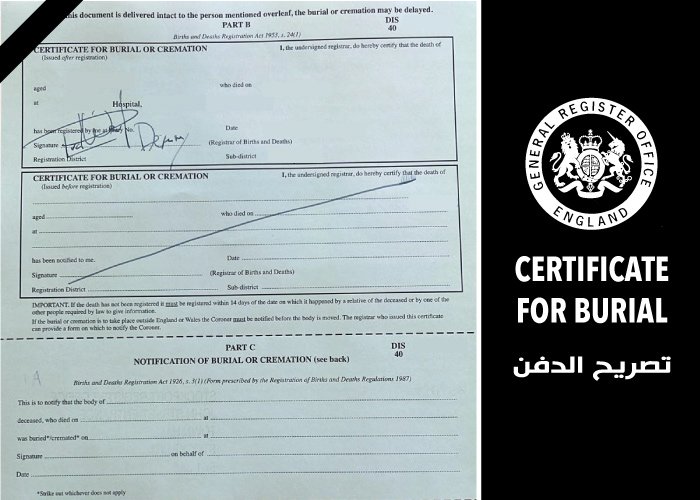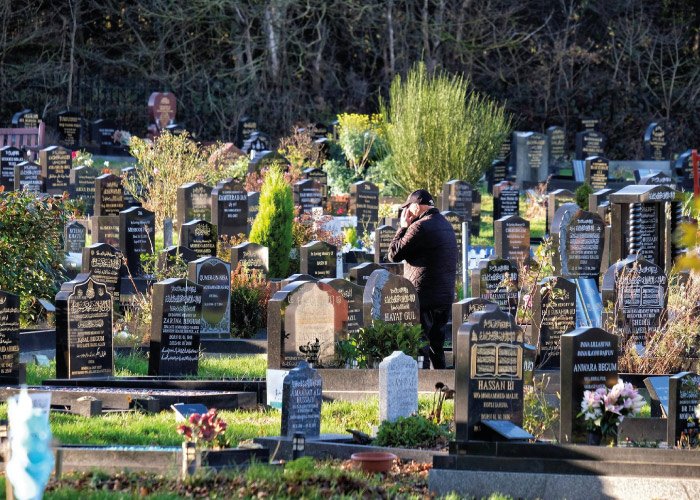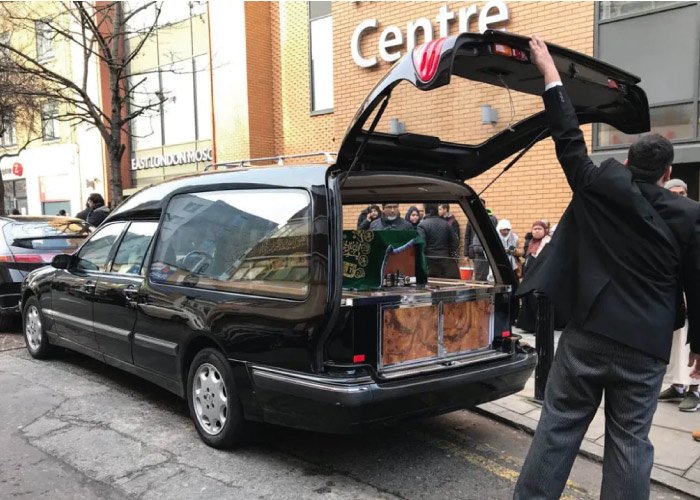
Muslim Funeral Funeral Services Bathrooms Layout Plan Grave Sign Monthly Maintenance Funeral Plan & Cost

MUSLIM FUNERAL SERVICES
An Islamic funeral is a spiritual occasion that adheres to a strict set of funeral customs and rites. If your loved one requires a Muslim burial, here’s our guide to a Muslim funeral service.
Muslim beliefs about death
The Islamic faith has a strong belief in the afterlife. Muslims follow the principle that the way a person acts throughout their life will determine what happens to them after they die. If they perform good deeds and follow Islamic religious codes, they will be rewarded with entry to Paradise on the Day of Judgement. On this day, Muslims believe the world will end and the dead will experience eternal peace (Paradise) or eternal suffering (Hell).
How do Muslim funerals work?
Islamic funerals are extremely spiritual events and central to Muslim communities. In addition to offering comfort for the grieving, a Muslim funeral service provides an opportunity to pray to Allah (the Islamic God) to have mercy on the deceased.
Planning an Islamic funeral
Islamic law (“sharia”) dictates that funeral arrangements must start immediately after the death of a loved one. This means there is no viewing or visitation and mourners must attend their mosque’s prayer room to offer religious prayers for the deceased.
The family members in charge of the funeral will typically contact their local Islamic organisation for assistance; together they will look for a suitable funeral home or funeral director with experience arranging a Muslim funeral.
Mortuary, morgues, funeral parlors?
A mortuary is a building or room where deceased people are kept before they are buried, cremated, or identified. Mortuaries can also be known as morgues, funeral parlors, or funeral homes.
Preparing the body
Immediately after the death of a loved one, their eyes and mouth are closed, and the body is covered with a white sheet. According to a set of funeral rites and rituals, the body is washed three times by close family members of the same sex (Ghusl). The body is then positioned with the left hand on the chest and the right on top of that, before being shrouded with large, white sheets and tied with ropes (Kafan).
Since Muslims believe in the physical resurrection of the body after death, the faith prohibits cremation. Additionally, although autopsy is usually forbidden within Muslim communities – they believe it desecrates the body – organ donation is generally accepted as it can help save lives.
What happens at a Muslim funeral?
Firstly, mourners will congregate at the mosque to recite Ṣalāt al-Janāzah, the Islamic funeral prayer, which seeks pardon for the deceased and all dead Muslims. During this, everyone must face towards Mecca, the holy centre of Islam, and form at least three rows. After the prayers are complete, the body is transferred to the chosen burial site. For a Muslim burial, the grave should be perpendicular to Mecca, with the deceased’s body positioned so their right side faces the Islamic holy city.
As the body is lowered into the grave, the congregation say a prayer. Wood or stones are laid down to prevent the body touching the dirt. Lastly, each mourner places three handfuls of soil into the grave. Large or decorative headstones are not usually allowed, so a small stone or marker is left to identify their final resting place.
How long does a Muslim funeral last?
On average, an Islamic funeral lasts between 30 and 60 minutes. The Muslim funeral rites are led by an imam (an Islamic leader), and typically include funeral prayers and several readings from the Quran.
What to wear to a Muslim funeral
All attendees, male or female, are expected to dress modestly and adhere to funeral etiquette. Men usually wear a shirt and trousers, while women wear a long-sleeved top, ankle-length skirt, and a headscarf. Additionally, shoes must be removed when entering a mosque prayer hall to ensure that no impurities are brought inside.
Can a woman attend a Muslim funeral?
Traditionally, only men are allowed to attend the burial, however, some Muslim communities permit women to attend.
What happens after a Muslim funeral?
After the funeral, the family will gather and receive mourners into their home. To help ease the burden, many guests bring food offerings for the first three days after the funeral.
The period of mourning usually lasts 40 days, but this will vary depending on the family. Traditionally, the mourning period for a widow is longer: four months and ten days. During this time, they must wear black, remain in their husband’s home, and are forbidden to interact with men they could potentially marry.
BEFORE GHUSL & BURIAL
"Ghusl" Service?
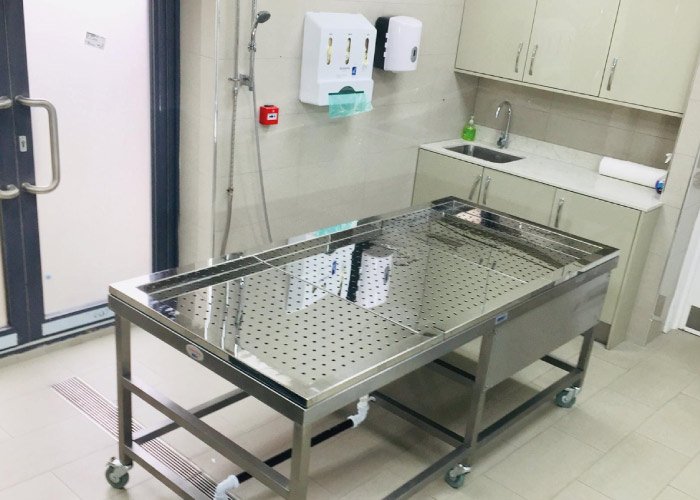
"Ghusl" Service?
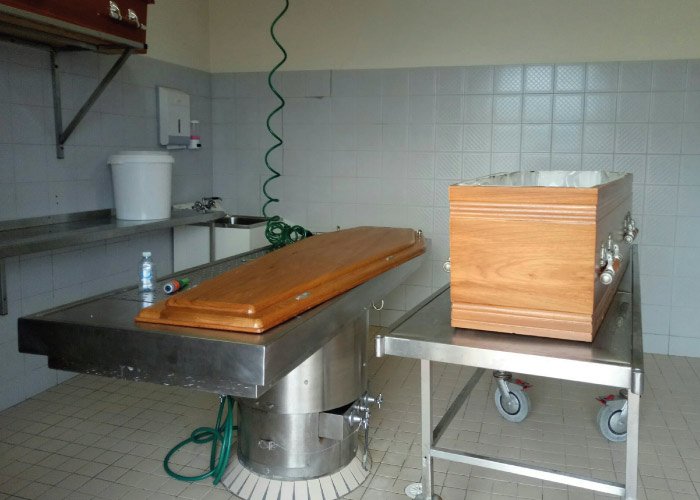
AFTER GHUSL
"Ghusl" Service?

"Ghusl" Service?

EXPLORE OUR GALLERY
WHY FUNERAL HUB?
Here's why Funeral Hub is the right choice:
Expertise and Experience: Our team of builders possesses a deep understanding of the intricacies involved in construction services, ensuring a smooth and successful project every time.
Personalized Service: Each project is unique. We take the time to listen to your needs, preferences, and aspirations. Our dedicated team will tailor the design and construction process to match your distinctive style and requirements.
Quality Craftsmanship: Every effort should add value to your property. From the foundation to the finishing touches, we use only the finest materials and employ skilled craftsmanship.
Hassle-Free Process: Our experienced team will guide you through the design and planning stages, ensuring that all necessary considerations are addressed. Sit back, relax, and watch your dream home take shape, hassle-free.
Experience the Difference: We pride ourselves on our commitment to excellence, reliable service, and top-notch craftsmanship. Trust us to deliver exceptional builds that go above and beyond your expectations.
FUNERAL PACKAGES & PRICES
BASIC
Budget Service- Funeral director’s fee
- Taking care of any legal paperwork or administration related to the funeral or burial
- Picking up the deceased from the hospital or from home
- Ghusl (washing and shrouding)
- Kaffan (shroud) or coffin suitable for burial
- Transporting the deceased after Ghusl to the mosque or home and onto the cemetery
- Imam’s services and Salat al-Janaza (Islamic funeral prayer)
- Burial plot £2000- £3900
REGULAR
Poplar Service- Funeral director’s fee
- Taking care of any legal paperwork or administration related to the funeral or burial
- Picking up the deceased from the hospital or from home
- Ghusl (washing and shrouding)
- Kaffan (shroud) or coffin suitable for burial
- Transporting the deceased after Ghusl to the mosque or home and onto the cemetery
- Imam’s services and Salat al-Janaza (Islamic funeral prayer)
- Burial plot £2000- £3900
ADVANCED
Bespoke Service- Funeral director’s fee
- Taking care of any legal paperwork or administration related to the funeral or burial
- Picking up the deceased from the hospital or from home
- Ghusl (washing and shrouding)
- Kaffan (shroud) or coffin suitable for burial
- Transporting the deceased after Ghusl to the mosque or home and onto the cemetery
- Imam’s services and Salat al-Janaza (Islamic funeral prayer)
- Burial plot £2000- £3900
Web Form

Our Office Address
- Mauldeth Rd, Manchester
Working Hours
Mon - Fri: 09:00-18:00
Sat-Sun: 10:00-12:00
Call: 07498962755
Our team is ready to answer any questions.











